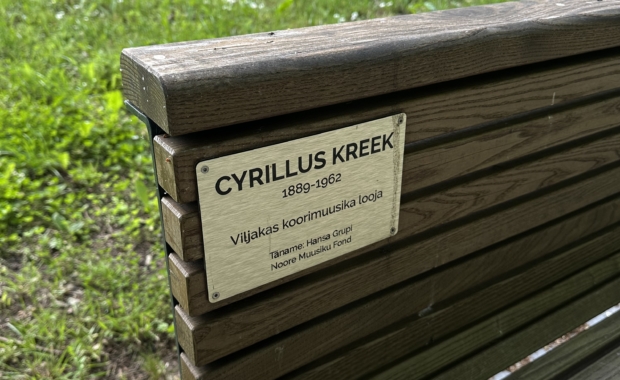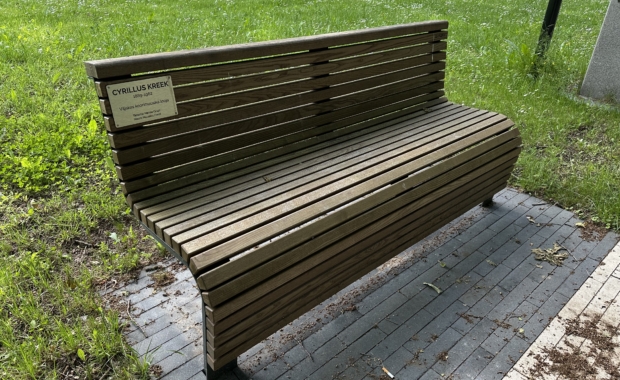Cyrillus Kreek
(3. December 1889 – 26. March 1962)
Composer, Choir Conductor, and Folk Music Researcher – Shaper of the National Musical Language.
Cyrillus Kreek was one of the most influential shapers of Estonia’s national musical language, with his music consisting almost entirely of arrangements and adaptations of Estonian folk songs. The majority of his compositions are choral works.
He began his musical studies at the Nikolai Congregation School in Haapsalu and, in 1908, enrolled in the trombone class at the St. Petersburg Conservatory, where he also continued studying composition and music theory. His studies were interrupted by the First World War, after which Kreek began working as a music teacher in Estonia, teaching in Haapsalu, Rakvere, Tartu, and Tallinn. He was a lecturer at the Tartu Higher Music School and taught theoretical subjects at the Tallinn Conservatory (1940–1941, 1944–1950), becoming head of the Department of Theory in 1947.
Cyrillus Kreek made an invaluable contribution to the collection and preservation of Estonian folk music, being the first to use a phonograph for gathering folk songs. His folk song collection contains around 1,300 songs, and his compositions include nearly a thousand folk song and dance melodies.
In memory of Cyrillus Kreek, a museum has been opened in his former home in Haapsalu, and a memorial stands on the shore of Väike Viik. His legacy is celebrated annually with a festival in Haapsalu, bringing together choirs and music enthusiasts from across Estonia.
A four-part radio program titled “Cyrillus Kreek: Composer and His Time”, dedicated to the composer’s 120th birthday, is available in the Estonian Public Broadcasting (ERR) archive.
The texts have been compiled using materials from Estonian Public Broadcasting (ERR) and the Estonian Music Information Centre (EMIC).

